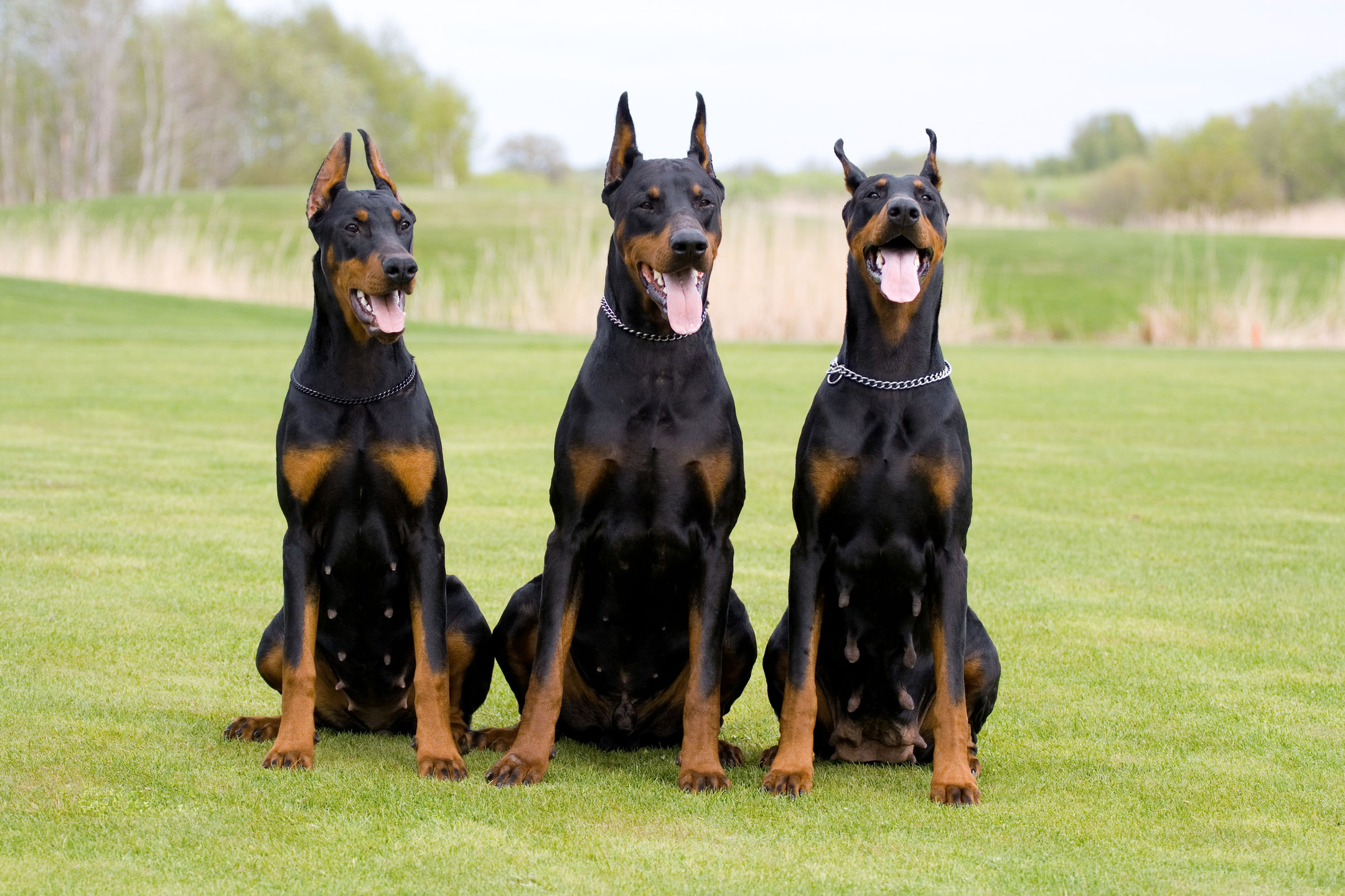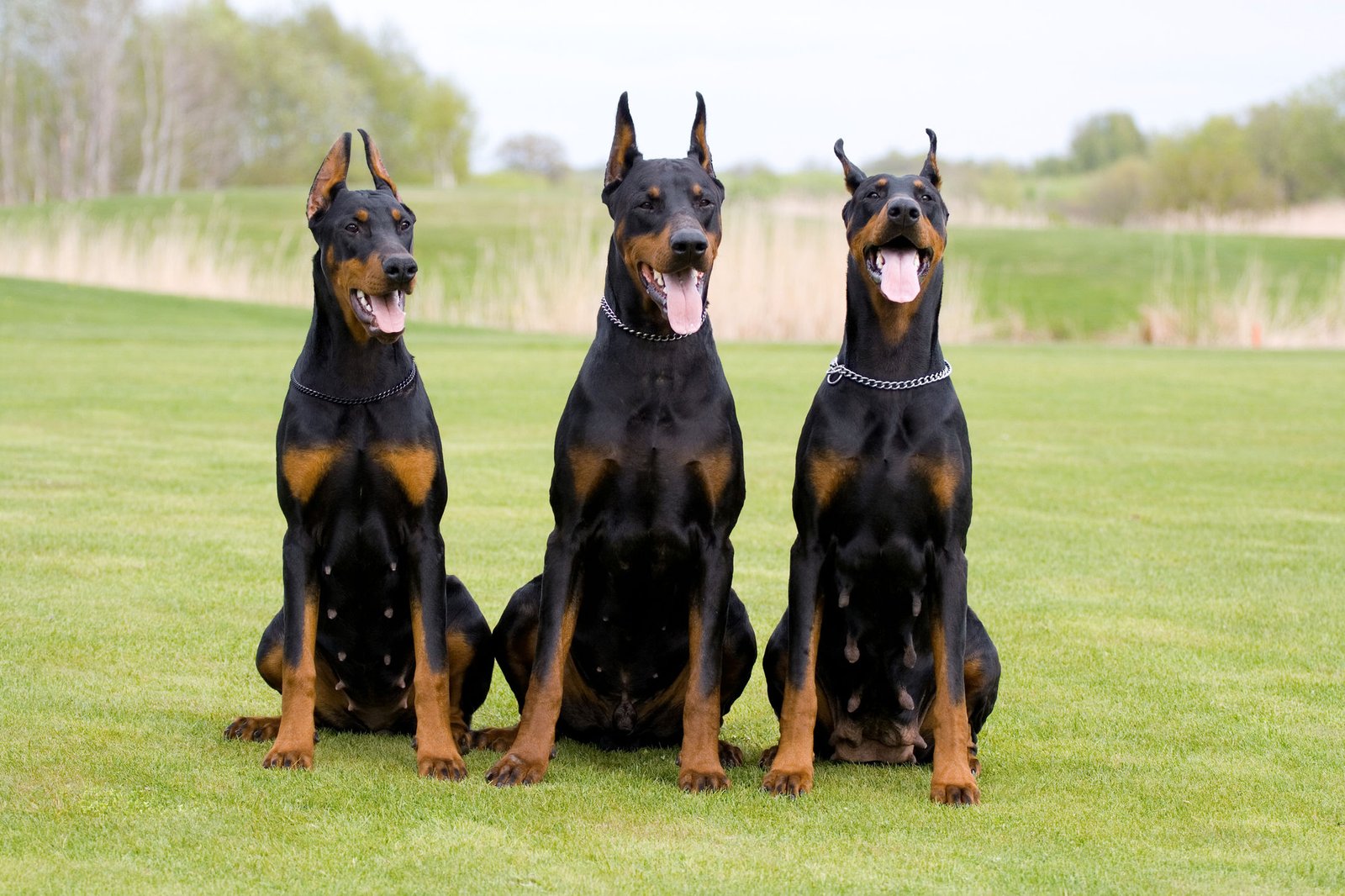Owning a Doberman can be a rewarding experience, but it’s not without its challenges. These intelligent and energetic dogs require proper training, socialization, and an active lifestyle. Did you know that Dobermans were originally bred to be fearless guard dogs? Their natural instincts and strong protective nature can make them a handful for inexperienced owners.
When considering owning a Doberman, it’s important to understand their history and characteristics. They were originally bred by a German tax collector named Louis Dobermann in the late 19th century to serve as his personal protection dogs. This breed is known for their loyalty, intelligence, and athleticism. However, they can also be strong-willed and require a firm yet loving owner who can provide them with consistent training and mental stimulation. With proper care and training, Dobermans can make wonderful family companions and thrive in an active and structured environment.
Owning a Doberman can be challenging but rewarding. These intelligent and energetic dogs require a dedicated owner who can provide them with proper training, socialization, and exercise. Training sessions should be consistent and firm, focusing on positive reinforcement. Dobermans need regular mental and physical stimulation to prevent boredom and destructive behavior. Additionally, their nutritional needs should be met with a balanced diet. With the right commitment and care, owning a Doberman can be a fulfilling experience.

How Hard Is It to Own a Doberman?
Owning a Doberman can be an exhilarating and rewarding experience, but it also comes with its challenges. If you’re considering adding a Doberman to your family, it’s important to understand the responsibilities and potential difficulties that come with owning this breed. In this article, we will explore the various aspects of owning a Doberman and provide valuable insights into how hard it really is to be a Doberman owner.
Training a Doberman
One of the most crucial aspects of owning a Doberman is training. This breed is known for its intelligence and willingness to learn, but they are also highly energetic and independent. Training a Doberman requires consistency, patience, and firmness.
Dobermans thrive in structured environments where they have clear boundaries and rules to follow. Positive reinforcement techniques work best with this breed, as they respond well to reward-based training methods. However, it’s essential to start training your Doberman from an early age to establish good habits and prevent any behavioral issues from developing.
Additionally, Dobermans require regular mental stimulation and exercise to prevent boredom and destructive behaviors. Daily walks and playtime in a secure, fenced yard are essential to keep them physically and mentally stimulated. Their high energy levels and intelligence make them excellent candidates for agility training, obedience competitions, and other activities that challenge their mental and physical abilities.
Socialization and Behavioral Needs
Another important aspect of owning a Doberman is socialization. Early and ongoing socialization is crucial to ensure your Doberman develops into a well-rounded and well-behaved companion. Exposing them to various environments, people, animals, and situations from a young age will help prevent fearfulness, aggression, and anxiety.
Dobermans are typically protective of their families, which can sometimes translate into a higher level of caution around strangers. Proper socialization can teach them to discern between real threats and neutral situations, reducing the potential for negative reactions. It’s important to expose them to a wide range of experiences and people during their early development stages.
Beyond socialization, Dobermans have other specific behavioral needs. They require consistent exercise to burn off energy and prevent boredom-induced behaviors like excessive barking or digging. Mental stimulation, such as puzzle toys or obedience training sessions, can help keep their minds engaged and prevent destructive or anxious behaviors. Providing a structured routine and environment will go a long way in keeping your Doberman happy and well-behaved.
Grooming and Health Care
While Dobermans have a short, low-maintenance coat, they still require regular grooming to keep them looking their best. Weekly brushing helps remove loose hair and distributes the coat’s natural oils. Their nails should be trimmed regularly to prevent overgrowth and discomfort.
Doberman Pinschers are generally a healthy breed, but they are prone to certain health issues. Regular veterinary check-ups, vaccinations, and preventive care are essential to maintaining their overall health and well-being. Common health concerns for Dobermans include hip dysplasia, dilated cardiomyopathy, and hypothyroidism. Responsible breeders will conduct health screenings on their breeding stock to minimize the risk of passing on genetic disorders to their puppies.
Family Compatibility
Dobermans are known for their loyalty and devotion to their families. They form strong bonds with their owners and thrive in households where they are included as part of the family. However, their protective nature and energy levels may not make them suitable for every family or living situation.
Dobermans require a lot of attention and exercise. They do best in homes where they have ample space to move around and play, preferably with a secure yard where they can safely release their energy. Additionally, families with young children should carefully evaluate whether a Doberman’s energy and size are compatible with their household dynamics. While Dobermans can be excellent family dogs, they may be too boisterous for very young children or individuals with limited physical capabilities.
Owning a Doberman: The Verdict
Owning a Doberman can be a fulfilling experience for the right person or family. While there are challenges involved, such as training, socialization, and energy requirements, the rewards of having a well-trained, loyal, and loving Doberman by your side are immeasurable.
Ultimately, the difficulty of owning a Doberman depends on your commitment, dedication, and ability to meet their needs. If you are prepared to invest time, effort, and resources into proper training, socialization, and care, owning a Doberman can be an incredibly rewarding and enjoyable experience.
Key Takeaways: How Hard Is It to Own a Doberman?
- Owning a Doberman requires commitment and dedication.
- Dobermans need regular exercise to keep them happy and healthy.
- Training is essential for a well-behaved and obedient Doberman.
- Dobermans can be protective and loyal, making them great family dogs.
- Due to their intelligence and energy, Dobermans thrive in a structured and active environment.
Frequently Asked Questions
Owning a Doberman can be a rewarding experience, but it is also a responsibility that requires commitment and knowledge. If you’re considering getting a Doberman, it’s important to understand the challenges and responsibilities that come with it. Here are some frequently asked questions about owning a Doberman:
1. What is the exercise requirement for a Doberman?
Dobermans are an energetic and active breed that requires daily exercise to keep them mentally and physically stimulated. They should have the opportunity to engage in activities like walking, running, playing fetch, or participating in canine sports. Aim for at least 1-2 hours of exercise per day to keep your Doberman healthy and happy.
It’s important to note that Dobermans have a high prey drive and need to be properly trained and socialized to ensure they can safely interact with other animals and individuals during exercise. Regular exercise will not only keep your Doberman physically fit but will also help prevent behavior problems that can arise from pent-up energy.
2. Are Dobermans good with children?
Dobermans can be great family pets and can get along well with children when properly trained and socialized from a young age. However, due to their size and energy level, it’s important to supervise interactions between Dobermans and young children to prevent accidental knocks or falls.
Early socialization is key to teaching your Doberman how to interact with children and other family members. It’s important to introduce them to various situations, including interactions with children, in a positive and controlled manner. With the right training and guidance, Dobermans can form strong bonds with children and become loyal and protective family members.
3. Do Dobermans require a lot of grooming?
Dobermans have a short coat that requires minimal grooming compared to other breeds. They have a natural oil in their coat that helps keep it clean and shiny. Regular brushing once or twice a week is usually sufficient to remove loose hair and maintain their coat’s health. However, during shedding seasons, you may need to brush them more frequently to control shedding.
In addition to brushing, it’s important to regularly check your Doberman’s ears for any signs of infection and clean them if necessary. You should also trim their nails regularly and maintain good dental hygiene by brushing their teeth or providing dental treats. Overall, Dobermans are relatively low-maintenance when it comes to grooming.
4. Are Dobermans easy to train?
Dobermans are intelligent dogs that are eager to please and quick to learn. With proper training techniques and consistency, they can be relatively easy to train. However, they are also a strong-willed breed that requires a confident and consistent owner who can establish clear boundaries and provide positive reinforcement.
Early socialization and puppy training classes are highly recommended for Dobermans to expose them to different situations, people, and animals. These classes can help them develop good manners, basic obedience skills, and proper behavior in various environments. Continuing their education with advanced training and mental stimulation will keep their minds sharp and prevent behavioral issues.
5. How much space do Dobermans need?
While Dobermans are a larger breed, they can adapt well to various living situations as long as they receive proper exercise and mental stimulation. Ideally, they should have access to a securely fenced yard where they can run and play. However, if living in an apartment or smaller space, regular exercise outside the home is crucial to meet their activity needs.
Regardless of the living space, it’s important to note that Dobermans are indoor dogs and thrive on human companionship. They should never be left alone for long periods of time as they may become anxious or develop separation anxiety. Providing them with a comfortable and safe indoor environment, along with regular exercise and mental stimulation, is essential for their well-being.

Owning a Doberman can be a challenging responsibility, but it is not impossible.
They require regular exercise, socialization, and consistent training to thrive.
Dobermans also have specific health needs and can be prone to certain genetic conditions.
However, with proper care and attention, Dobermans can make loyal and loving companions.
It is important for potential owners to understand the commitment required and be prepared to invest time and effort into meeting their needs.
If you are willing to put in the work, owning a Doberman can be a rewarding experience.
